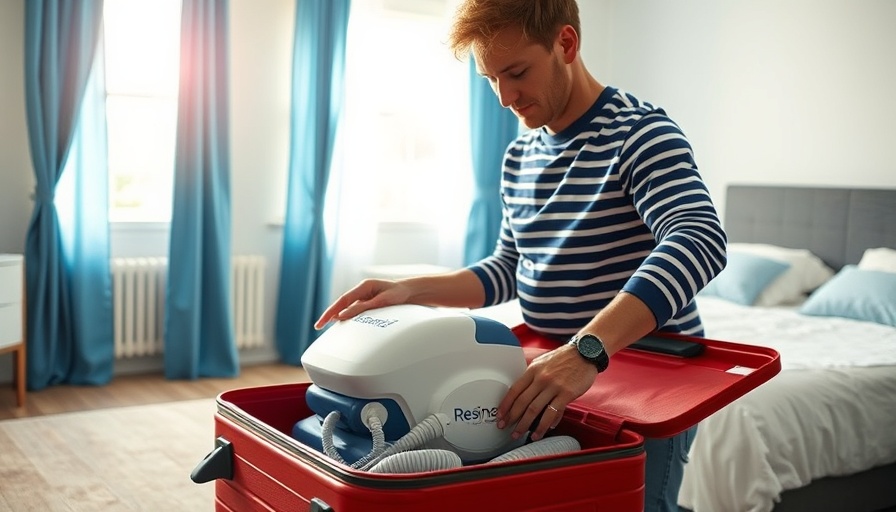
Understanding Sleep Health and Travel
Traveling with a ResMed AirSense 10 can seem daunting, especially for families. Sleep health is critical for everyone, particularly children. By ensuring quality sleep, we foster better moods, improved learning, and overall health in our youngsters. The importance of sleep cannot be overstated, especially in today's fast-paced world where sleep deprivation is common among kids and adults alike.
The Role of Sleep in Child Development
Children need quality sleep to support their growth and development. Insufficient sleep can lead to behavioral issues, lagging academic performance, and even health problems later in life. Understanding the different sleep disorders like insomnia or sleep apnea can help parents make informed decisions about their children’s bedtime routines, especially when traveling.
Travel Tips for Using Your ResMed AirSense 10
Ensure that you know how to set up your ResMed AirSense 10 while on the go. This machine helps manage sleep apnea and provides continuous airflow during sleep. When packing, remember the necessary accessories like your mask, power supply, and replacement filters. It's also beneficial to download the user manual on your mobile device for easy access during travel.
Creating a Sleep Environment Anywhere
A key component of quality sleep is the sleeping environment. Whether in a hotel or a friend’s house, create a restful atmosphere. Use blackout curtains or an eye mask to block out light and earplugs to minimize noise. Adjust the temperature to your comfort level to further improve your sleep quality.
Adjusting to New Time Zones and Circadian Rhythms
Travel often means crossing time zones, which can disrupt your child’s circadian rhythm. Before heading off, gradually adjust your child’s bedtime to match the travel destination. Once there, adhere to a consistent sleep schedule to help them adjust.
Incorporating Healthy Sleep Hygiene
Good sleep hygiene includes creating calming bedtime rituals and limiting screen time before bed. Encourage reading, storytelling, or gentle stretching to prepare for sleep. Be mindful of caffeine and sugary snacks, as they can hinder sleep quality. Practicing sleep hygiene not only supports physiological health but enhances mental health too.
Recognizing Sleep Disorders and Seeking Help
If you notice your child struggling with sleep during travels, it could be a sign of a deeper issue like sleep apnea or restless leg syndrome. Keeping an open line of communication with sleep specialists can keep the conversation going about your child's sleep needs. Awareness of potential sleep disruptions is key to ensuring everyone has restful vacations.
Future Trends in Sleep Technology and Travel
As awareness of sleep health increases, so does interest in sleep technology. Devices that monitor sleep patterns, like sleep tracking apps, are gaining traction. These technologies can be beneficial while traveling, helping families monitor sleep quality through real-time feedback.
Encouraging Conversations About Sleep
Engage your children by discussing the importance of sleep. Frame it as a fun and necessary part of health, similar to eating well and exercising. Because sleep is still often overlooked, fostering an understanding of its benefits can lead them to make healthier lifestyle choices. Simple strategies can create a culture around sleep that extends to their friendships and future families.
By applying these tips, parents can travel confidently with their ResMed AirSense 10, ensuring their families enjoy restful nights no matter how far they roam. Don't underestimate the power of sleep—it fuels happiness, health, and good behavior!
 Add Row
Add Row  Add
Add 




 Add Row
Add Row  Add
Add
Write A Comment